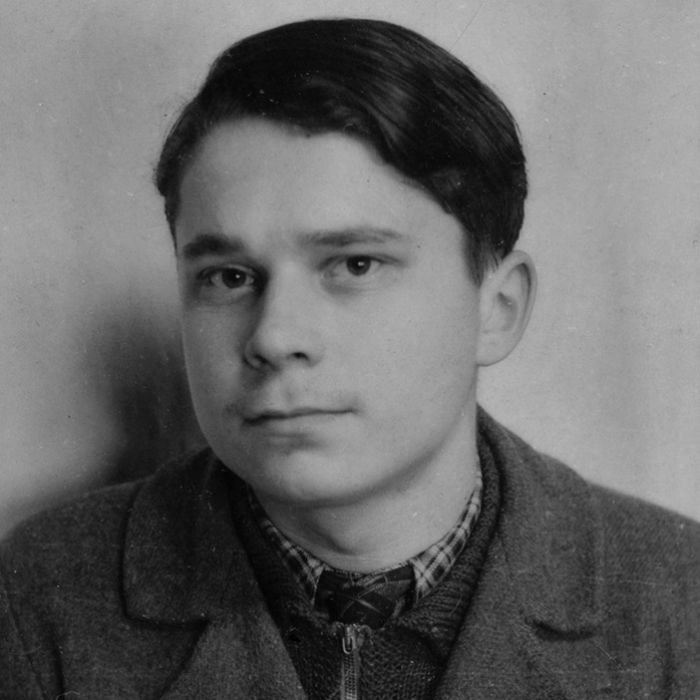Walter Klingenbeck was born in Munich on March 30, 1924 and lived at Amalienstraße 44 in Munich-Maxvorstadt with his parents and his sister Anneliese. The family were very devout. Walter Klingenbeck was a member of the Catholic youth organisation Katholische Jungschar of St. Ludwig until it was dissolved in 1936. It was led by the chaplain Georg Handwerker, a declared opponent of the Nazi regime. Together with his father, Walter Klingenbeck listened to foreign radio broadcasts such as Vatican Radio. In 1941, Walter Klingenbeck began an apprenticeship as a gearing mechanic with the company Rohde & Schwarz, where he became friends with Daniel von Recklinghausen, Hans Haberl and Erwin Eidel. The four of them regularly listened illicitly to “enemy broadcasts” such as the British Broadcasting Corporation (BBC) and set up an illicit transmitter to pass on the information they had gleaned. To draw attention to the hopelessness of the war, they wrote “V” for the Allies’ victory sign in black paint on walls and signs in 40 places in Munich. Walter Klingenbeck and his friends also hatched plans to write and distribute leaflets saying “Hitler cannot win the war, he can only prolong it”. Walter Klingenbeck was betrayed and was arrested on January 26, 1942. On September 24, 1942 the Volksgerichtshof (People’s Court) sentenced him, Daniel von Recklinghausen and Hans Haberl to death; Erwin Eidel was sentenced to eight years in prison. Following pleas for clemency, the death sentences of Daniel von Recklinghausen and Hans Haberl were commuted to long jail terms. Walter Klingenbeck was not reprieved. On August 5, 1943, aged just 19, he was executed by guillotine in Stadelheim prison in Munich. In his farewell letter he wrote to Hans Haberl: “I have just heard about your reprieve. Congratulations! But my request has been turned down. So that’s the way it goes. Don’t be sad. After all, you’ve made it. That’s worth a lot. I’ve just received the sacraments and am now quite calm. If you want to do something for me, then say a few Our Fathers. Farewell. Walter.” (text Klaus Bäumler, editor C. Fritsche, translation C. Hales)




